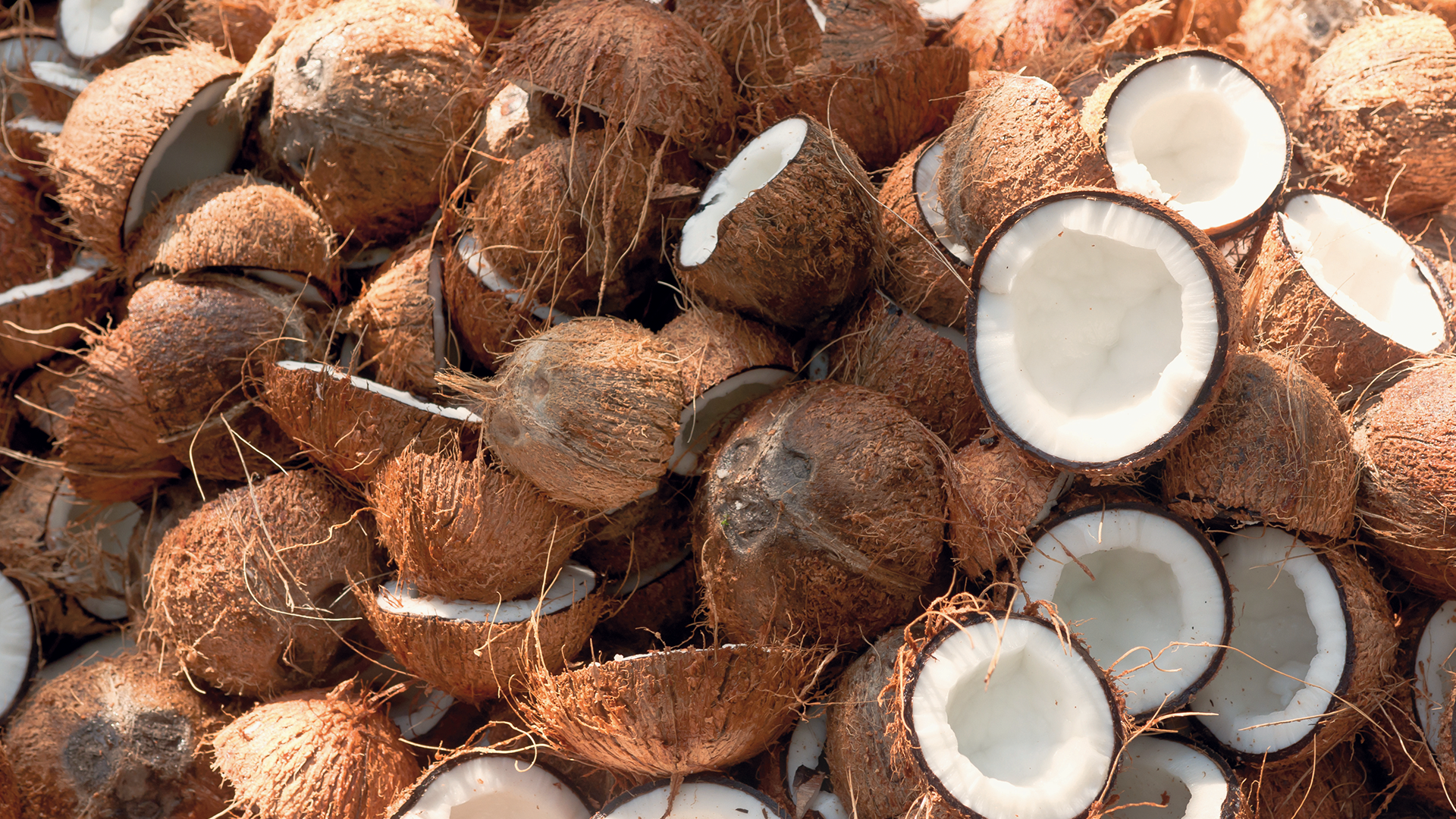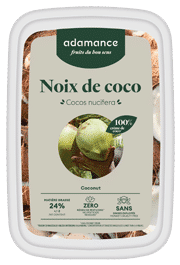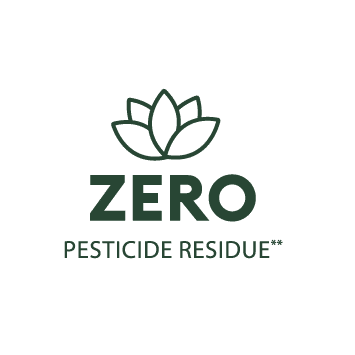PRODUCER & TERROIR
Life under the coconut trees!
Sandalankawa Plantation is a 78-hectare family-owned plantation with deep roots in the area. This is the only plantation that is wholly dedicated to producing coconuts for coconut milk and cream. 10% of the land is reserved for planting the iconic Sri Lankan tree species. Mr. Nishan Nawarathee has been the plantation’s manager for eight years. He is based in his home region, Sri Lanka’s North-Western Province, which is one of the key areas of Sri Lanka’s “coconut triangle”. Having always enjoyed being in contact with nature and working in a peaceful environment, he decided to become a coconut grower. His parents owned a small plantation, which probably influenced his decision to work in the production of this particular fruit.
In Sri Lanka, coconuts have been grown for centuries, and all children grow up with this fruit as part of the staple diet alongside rice. Sri Lanka mainly produces coconuts for domestic consumption. Our growers possess a unique, world-renowned expertise, which among other things translates into more selective harvests taking place around 8 times a year, enabling them to better control the ripeness of the fruit they harvest.

“Our plots are in the ’coconut triangle’ where we have the perfect climate for particularly aromatic coconuts.”
Experienced coconut farmer


GROWING TECHNIQUES
Having grown up in a village in the heart of the countryside, it is essential for Mr. Nishan Nawarathee to be in harmony with nature. In addition to benefiting from enough sunshine, the plantation’s almost completely flat terrain is made up of shallow to moderately deep gravelly clay soil. When planting new coconut trees, Nishan and his teams use the coconut shells to retain as much moisture as possible. They do this first by extracting the coconut flesh, then placing the shells in contact with the roots and on the surface around the new coconut palm. This also provides nutrients for the soil, and is an excellent natural fertilizer. They also use coconut leaves to cover soil. Together, these factors promote effective coconut cultivation by facilitating root growth and moisture retention.
Unlike in many other coconut-producing countries, in Sri Lanka only ripe coconuts are harvested, and the fruit is left to ripen for 30 days in the sun. This step is extremely important as it ensures that the coconut water is absorbed into the coconut flesh, giving it its intense aromatic profile. The plantation’s 28-strong harvesting team boasts a wealth of experience and expertise.

ENVIRONMENTAL AND SOCIAL ACTION
Over time, Mr. Nishan Nawarathee has borne witness to the degradation of nature around him. His awareness of nature’s value and importance has driven him to maintain environmentally-friendly practices within his plantation. Today, 80% of the energy used to process coconuts comes from the use of biomass (wood and coconut shells) and 25% from the solar panels in their plantation. Water is obviously a very important resource to protect, so they have set up rainwater recovery systems on the plantations as well as in the factory. Water has a major impact on coconut farming: when the monsoon is strong, the following year’s coconut harvest will be better. The peak production period is generally from April to July (i.e., the monsoon season).
They are also part of the “tree for life” program organized by the Sri Lankan government, which involves replanting trees to expand the forests. Government agricultural experts determine which endemic tree species to plant and where they should be planted.
As well as taking action to preserve biodiversity, Mr Nishan Nawarathee is committed to supporting his employees and the local community. As the plantation is located in a rural area, most of the village’s families work on it and benefit from it. Nishan has set up programs to help children of pickers aged 10 to 16 go to school. Alongside coconut plantations, there is also an area dedicated to rice cultivation and the planting of local fruit and vegetables, from which employees can benefit.







